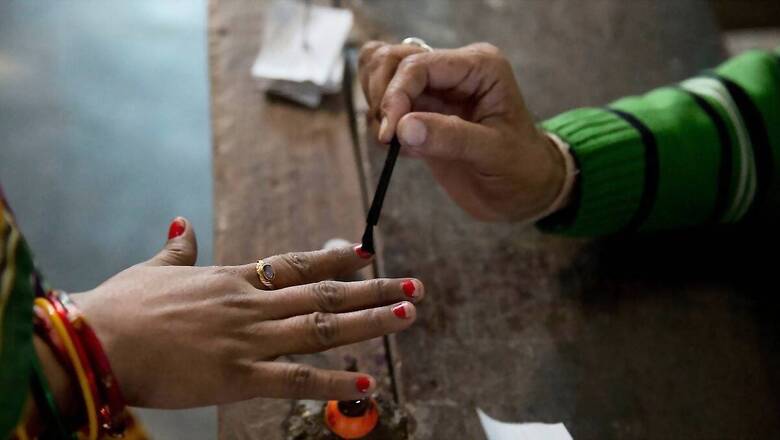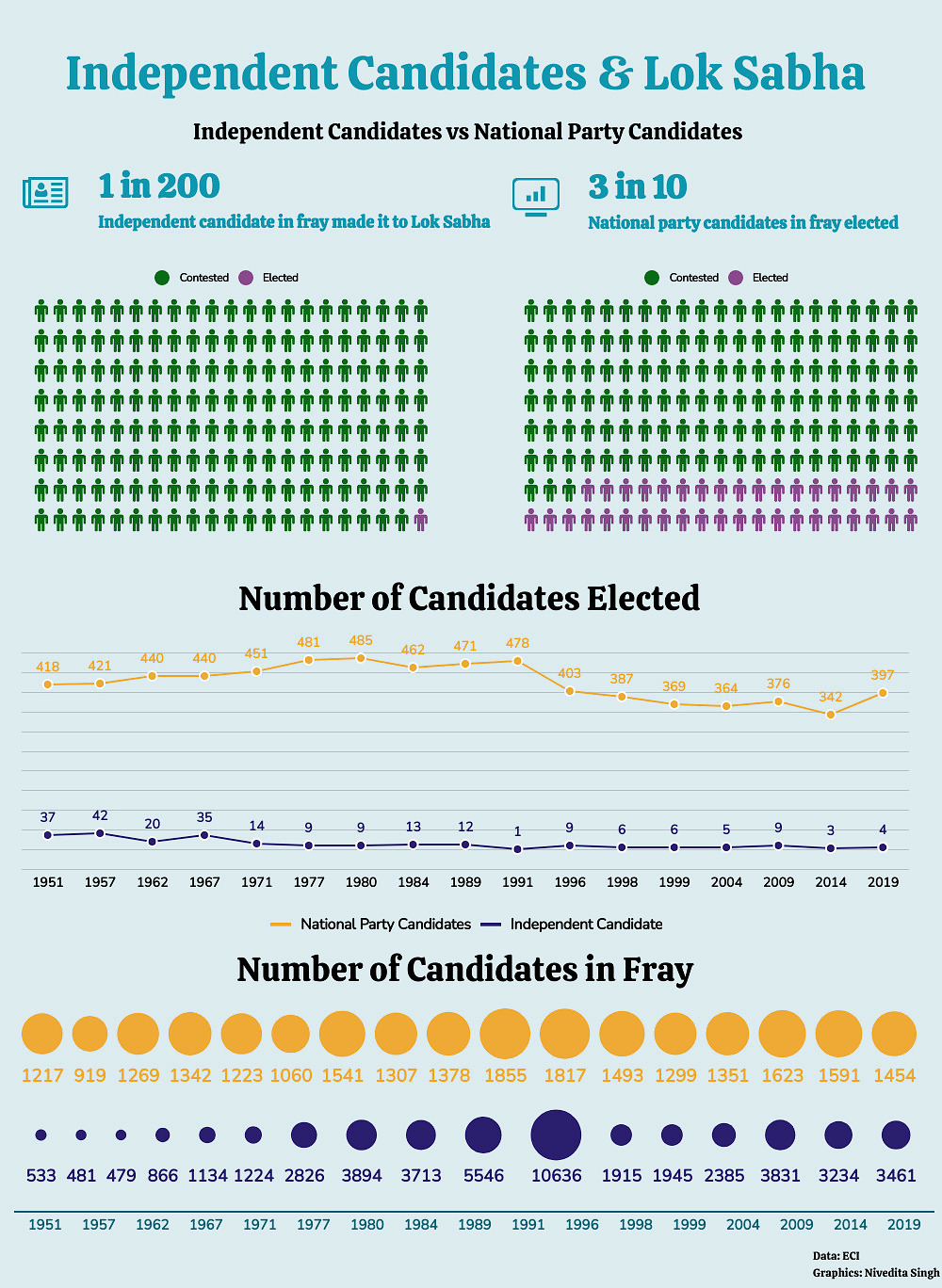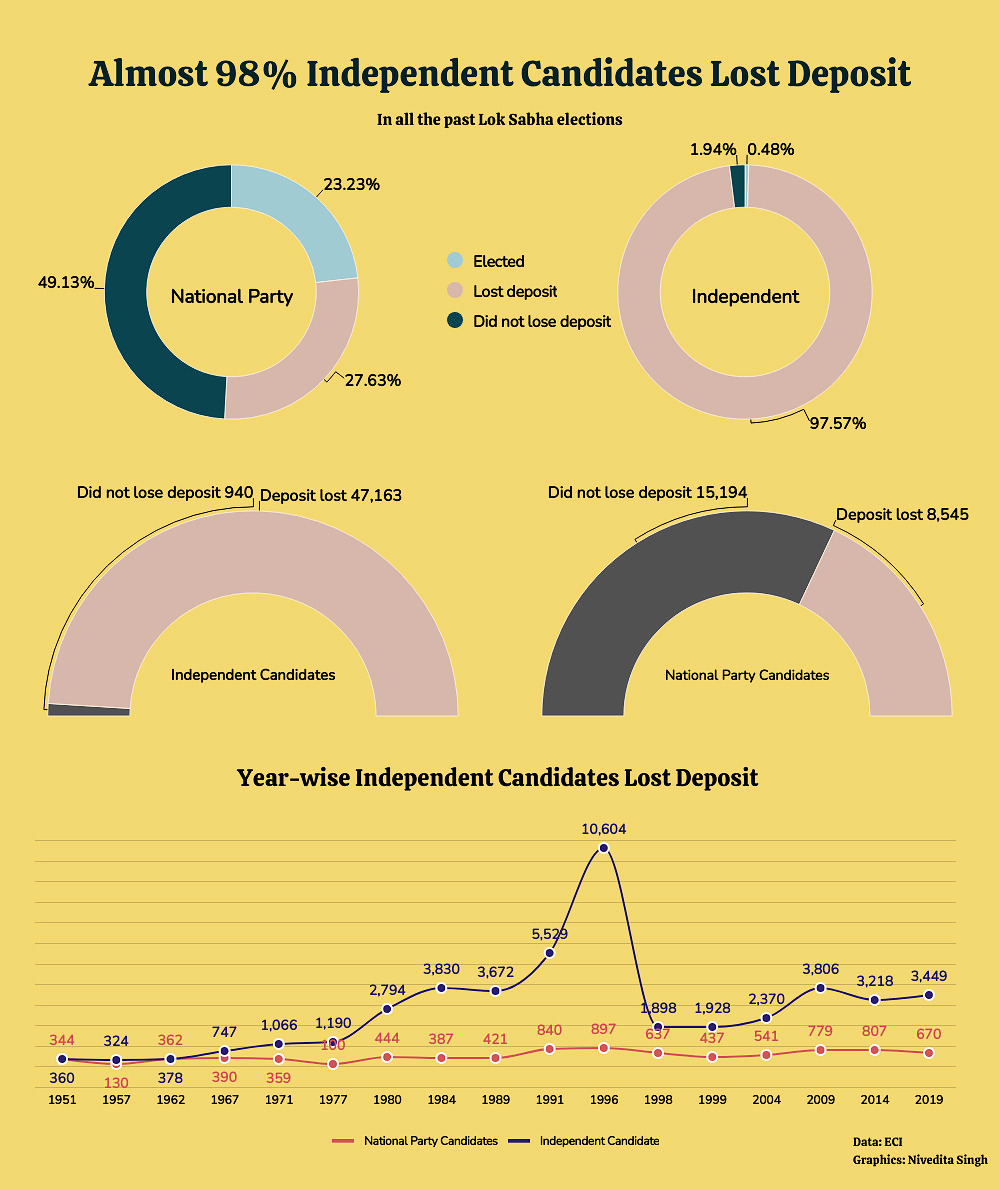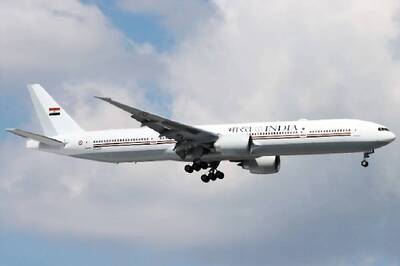
views
An independent candidate is one who contests an election but is not affiliated with any political party or association.
The second Lok Sabha, elected in 1957, saw the highest number of independent candidates — 42 — followed by the first Lok Sabha in 1951 that elected 37 independent candidates to the House. The last time the number of elected independent candidates reached double digits was in 1989.
Just one independent candidate was elected in 1991 — the lowest till date. Since the 1991 elections, independent candidates in single digits have been winning, data from the Election Commission of India (ECI) shows.
The analysis also shows that in every Lok Sabha election, the candidates of national parties took up more than 60 per cent seats, the upper sealing touching even 90 per cent a few times.

The country has entered into poll mood, with the first phase of voting for the 18th Lok Sabha held on Friday. This time, in the first two phases, a total of 1,458 independent candidates are trying their luck – 889 in the first phase and 569 in the second phase going for polls on April 26.
In total, there are 2,823 candidates in the first two phases and almost 52 per cent are independents.
Any individual in India can fight Lok Sabha elections. They just have to be above the age of 25 years and should not have been convicted. A valid voter in India can contest from any part of the county except autonomous districts of Assam, Lakshadweep and Sikkim.
For fighting independently, a candidate needs to give at least 10 proposals for nomination. Also, a person cannot contest from more than two constituencies in Lok Sabha.
Only Space For National Parties
Since 1951, a total of 23,739 candidates from national parties contested the elections and 7,185 were elected. The number of candidates from national parties who lost their deposit was 8,545.
Between 1951 and 1996, in every election, more than 400 candidates from national parties were making it to the House. The highest number of MPs from national parties was elected in 1980 when 485 candidates made it to the House.
Since 1998, the number of national party MPs in the House had not crossed 400, with the highest touching 397 in 2019.
The highest number of candidates fielded by national parties collectively stood at 1,855 (in 1991) while the highest number of independent candidates contesting one election was 10,636 in 1996.

The second Lok Sabha elections, that saw the highest number of independent candidates making it to the House, also saw the least number of independent candidates contesting the elections.
The number analysed by News18 also shows that since 1951, a total of 91,159 candidates have contested elections — across parties and independents — and 71,264 have lost deposits. Independent candidates make up for more than 66 per cent of this share.
According to ECI rules, a candidate from general category contesting the Lok Sabha poll has to make a deposit of Rs 25,000 while filing the nomination. In the case of Scheduled Castes and Scheduled Tribes, the amount is half.
The candidate loses the deposit if they fail to get a minimum of one-sixth of the total valid votes polled, otherwise they are eligible to take back the amount.
In almost each election, of the total candidates who lose the deposit, close to half are independent. In 2019, a total of 6,923 candidates lost deposit and 3,449 were independent, while 670 were from the national parties. Before that, in 2014, 7,000 candidates lost deposit and 3,218 were independent and 807 from national parties.
In 2009, a total of 3,806 independent candidates lost the deposit out of the 6,829. A total of 779 candidates were from national parties.
The elections for the 18th Lok Sabha will conclude on June 1 and the counting of the votes will take place on June 4.
Stay Ahead With all the Lok Sabha Election 2024 Related Real-Time Updates At News18 Website.


















Comments
0 comment